Caribbean
Hundreds participate in first-ever Cayman Islands Pride parade
Territory’s governor, premier among marchers
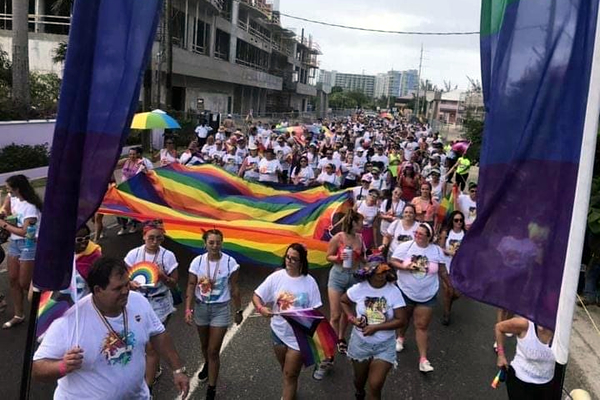
GEORGE TOWN, Cayman Islands — Upwards of 600 people participated in the first-ever Pride parade in the Cayman Islands that took place on Saturday.
Caymanian Gov. Martyn Roper, Premier Wayne Panton and opposition MP Barbara Conolly are among those who participated in the parade that the Cayman LGBTQ Foundation, a local advocacy group, organized.
Caymanian authorities required that all participants were vaccinated against COVID-19. Noel Cayasso-Smith, founder and president of the Cayman LGBTQ Foundation, on Monday told the Los Angeles Blade on Monday during a WhatsApp interview that his group did not allow alcohol in the parade and “discouraged” public displays of affections “in order to maintain a respectful event.”
“This is the first time in history the Cayman Islands has ever been able to put on a Pride,” said Cayasso-Smith. “I’m excited because we had no protesters. We had no negativity throughout the entire parade.”
Cayasso-Smith said he and members of the Cayman LGBTQ Foundation decided to organize the parade, in part, because the pandemic has drastically reduced travel to and from the Cayman Islands. Cayasso-Smith noted hotels, condominium associations, restaurants, bars and local businesses all supported the event.
“Pride month came in and you know for every year I got really tired of seeing our Cayman people leaving to go to Atlanta, New York, San Francisco, Canada to enjoy themselves for Pride,” he said, while noting the travel restrictions that remain in place because of the pandemic. “We thought it would be great to have our Pride here since we’re in our own little bubble.”
The Cayman Islands is a British territory that is located in the western Caribbean Sea between Jamaica and Cuba.
The Caymanian government in 1998 refused to allow a gay cruise ship with 900 passengers to dock. Religious officials in the British territories pressured authorities to prohibit an Atlantic Events vessel from visiting the territory.
Cayasso-Smith, who was born in the Cayman Islands, told the Blade that “growing up here has been very difficult for me as a gay person.” Cayasso-Smith lived in the U.K. for 13 years until he returned to the Cayman Islands to help his family rebuild their home after Hurricane Ivan devastated the British territory in 2004.
“I decided to stay because I thought, you know, I should be able to live in my country as a free gay man where there’s no laws restricting me from being who I am,” said Cayasso-Smith. “I feel that as a gay man contributing to the island I should have the right to live free.”
Caymanian Grand Court Chief Justice Anthony Smellie in 2019 struck down the territory’s same-sex marriage ban. The Caymanian Court of Appeal a few months later overturned the ruling.
The territory’s Civil Partnership Law took effect last September.
Cuba
Cuban lawmakers to consider simplifying process for trans people to change IDs
National Assembly in July will reportedly debate proposal
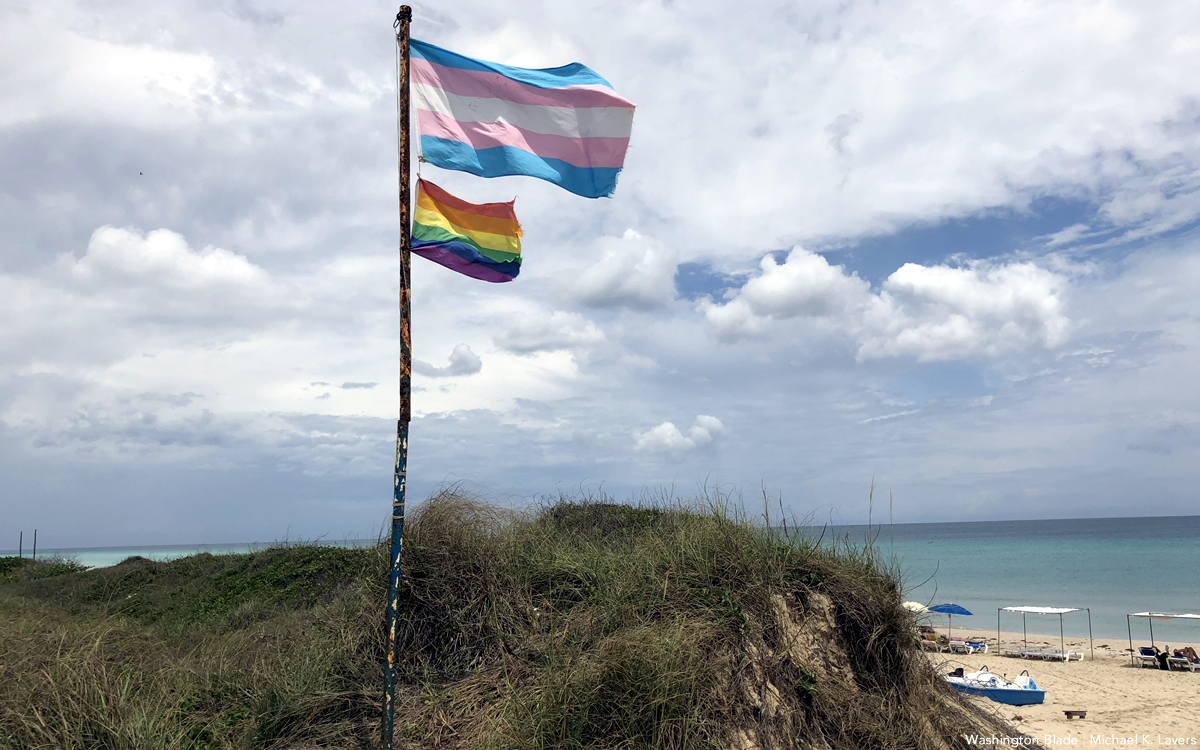
Cuban lawmakers are reportedly poised to consider a proposal that would allow transgender people to legally change the gender marker on their ID documents without surgery.
Cubadebate, a government-run website, on May 11 referenced the proposal in an article about an International Day Against Homophobia, Biphobia, and Transphobia march in Havana that the National Center for Sexual Education organized.
Mariela Castro, the daughter of former Cuban President Raúl Castro who spearheads LGBTQ issues on the island, is CENESEX’s director.
Cubadebate notes the National Assembly in July will consider an amendment to the country’s Civil Registry Law that “for the first time would allow citizens to determine the sex on their identification cards without the need for a court order or gender assignment surgery.”
Argentina, Uruguay, Germany, and Malta are among the countries that allow trans people to legally change their name and gender without surgery.
Cuba’s national health care system has offered free sex-reassignment surgery since 2008, but activists who are critical of Mariela Castro and CENESEX have said access to these procedures is limited. Mariela Castro, who is also a member of the National Assembly, in 2013 voted against a measure to add sexual orientation to Cuba’s labor code because it did not include gender identity.
The Cuban constitution bans discrimination based on sexual orientation and gender identity, among other factors. Authorities routinely harass and detain activists who publicly criticize the government.
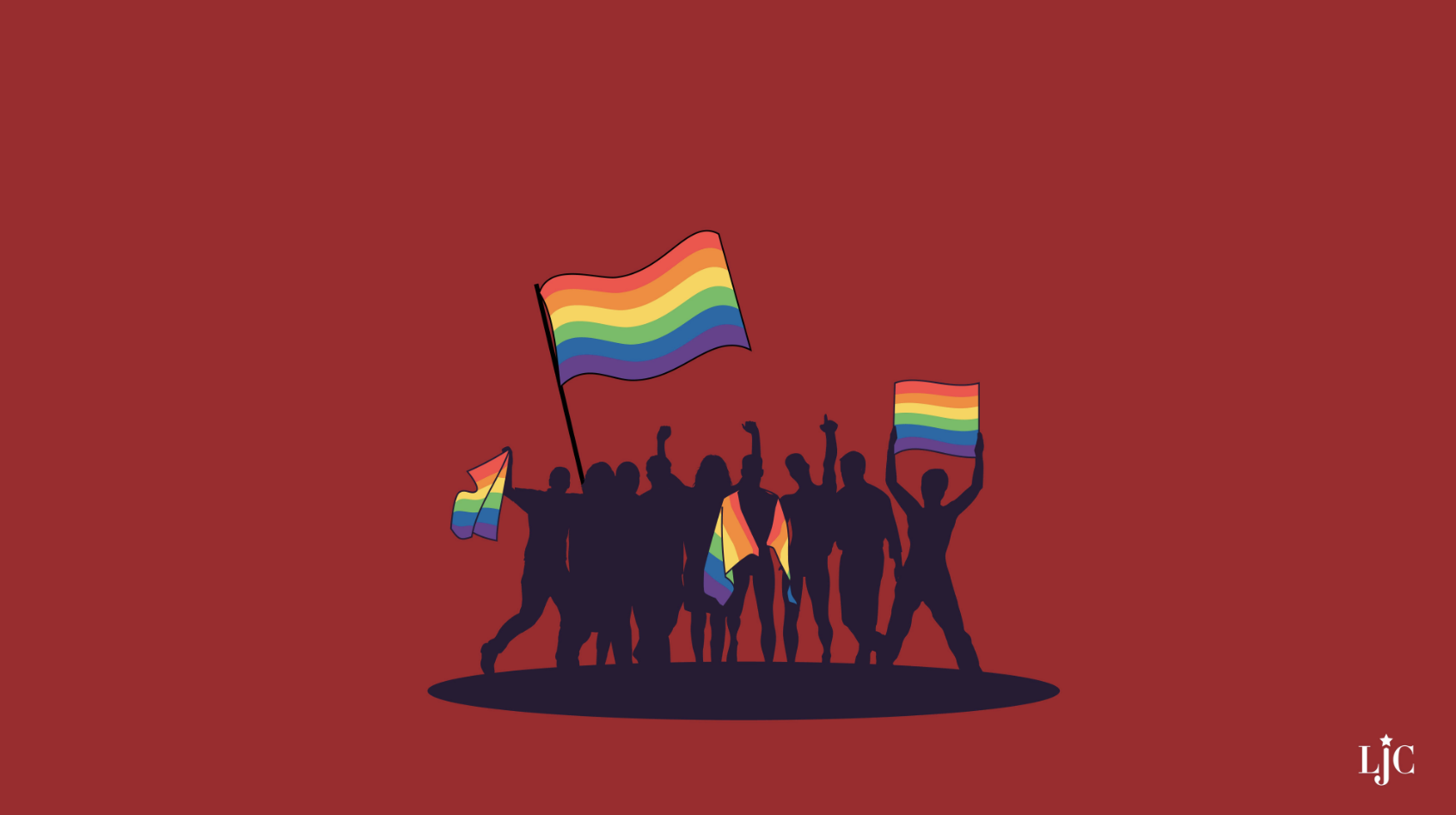
La Joven Cuba se publicó esta nota en su sitio web el 12 de mayo
Por NORGE ESPINOSA MENDOZA | En el calendario cubano, mayo es un mes cargado de fechas singulares y múltiples celebraciones. Desde su primer día, marcado por el tradicional desfile que recuerda a los mártires de Chicago como tributo a los trabajadores del mundo, pasando por el Día de las Madres, el Día Internacional de los Museos y el Día de África, entre muchas otras fechas. Se trata de una agenda cargada de memorias, consignas, festejos públicos o más domésticos que se concentran en esas cinco semanas.
La incorporación a todo ello del reconocimiento en nuestro país del 17 de mayo como Día Internacional contra la Homofobia, la Transfobia y la Bifobia removió ese panorama, sobre todo porque se trata de la misma fecha en la que se celebra el Día del Campesino y la Reforma Agraria. Entre las diversas reacciones que desencadenó todo ello, sirva como ejemplo del estupor con el que parte de la población cubana reaccionó, este fragmento de las décimas humorísticas creadas por Ángel Rámiz, muy popular gracias a su personaje El Cabo Pantera:
«Que esto no es chisme ni brete
y me da genio, compay,
¡con tantos días que hay
escoger el 17!
Quiero que se me respete,
se me dé una explicación:
¿Ese día mis amistades
me dicen felicidades
por guajiro o maricón?»
La elección de ese día molestó, irritó, generó controversias, en las cuales algunos rememoraron que para el calendario nacional ese día fue distinguido en favor del campesinado por conmemorarse en tal fecha el asesinato de Niceto Pérez, en 1946. La supuesta contradicción entre la imagen del campesino viril, líder y símbolo del trabajador agrícola, fue un detonante que no hallaba justificación ni siquiera en el hecho de que se trataba de resaltar desde nuestro país algo fijado internacionalmente por la Organización Mundial de la Salud.
Como señala la nota que presenta en el Decimerón esos versos de Ángel Rámiz, no faltó quien rebautizara al 17 de mayo, en tono despectivo pero también desde los límites de nuestro incontenible choteo, como Día del Maricón. Y más allá de esa anécdota, hacer memoria sobre este asunto nos permite recalibrar las tensiones que, entre consignas, mitos, épica y sexualidad, han marcado la aparición, visibilidad o invisibilidad de las llamadas minorías que también componen el entramado social del país, así sea al borde o en los márgenes de la historia oficial.
En esos territorios opacos, borrosos, ambiguos, a los que solo en fechas recientes se ha empezado a mirar y estudiar sin los prejuicios que sigue padeciendo la mirada de regla y cartabón de la narrativa oficial, aún perduran incomodidades, interrogantes y tabúes, que cada vez que nos acercamos al 17 de mayo resucitan o recobran interés en las agendas y los debates acerca de política, historia, sexualidad y cuerpo nacional. Un cuerpo que ha aprendido a saberse diverso, no solo porque desde esas agendas se le brinde tal posibilidad, sino porque las condiciones extremas a las que ha sobrevivido le han permitido hallar sus propias armas y herramientas para tal hazaña.
La memoria de los cuerpos disidentes
La historia de los cuerpos sexuados ha ido emergiendo lentamente ante nosotros, gracias al empeño de investigadores, historiadores, activistas, artistas, y finalmente, gracias a la irrupción de esas voluntades y biografías en los espacios gubernamentales donde por años se pensó únicamente desde el prisma heteronormativo y patriarcal, que también fue abrazado por la Revolución.
Las normativas y la preocupación por el deslinde de esos cuerpos, por las prácticas no re/productivas ni de ganancia inmediata para la nueva causa, estallaron desde el inicio. Es el elemento que dispara sus dardos lo mismo contra los cuerpos negros y mulatos que se divierten la madrugada del puerto habanero durante los pocos minutos del documental PM (cuya censura en 1961 provocó las Palabras a los intelectuales), que contra los pasajes eróticos de El mundo alucinante, la novela que presentó Reinaldo Arenas al concurso de la UNEAC en 1967, y que no solo no ganó al premio, sino que aún no ha sido publicada en Cuba. Ese recelo también fue el que activó las redadas en la Rampa habanera, la Noche de las Tres P en 1961, o las expulsiones de las universidades y escuelas de arte de aquellos que vivían una sexualidad disidente en la misma década.
El I Congreso de Educación y Cultura formalizó ese rechazo, en 1971, y aseguró durante los años 70 un periodo de oscurecimiento y pobreza en numerosos espacios de la vida nacional durante el decenio. Esos recelos volvieron a aflorar durante los días del Mariel y la Embajada de Perú: declararse lesbiana u homosexual (el término gay no era frecuente en el habla cubana de esos días aún) era una especie de salvoconducto inmediato para quienes querían abandonar el país rumbo a los Estados Unidos, a pesar de la amenaza de golpiza, o tener que avanzar a través de una muchedumbre que gritaba ofensas homofóbicas con la misma intensidad con la que lanzaba huevos podridos contra esos «desafectos». La memoria tarda en sanar. La memoria del cuerpo también tiene su propio canal de biografías.
La memoria tarda en sanar. La memoria del cuerpo también tiene su propio canal de biografías.
Esas memorias han demorado en añadirse a la narrativa que repasa esos acontecimientos. Los libros y testimonios que en su mayoría dan fe de esos rechazos y traumas comenzaron a aparecer fuera de Cuba, ya en los 80, y la llegada de la generación de los marielitos a Estados Unidos de América abrió una brecha de información que dio pie a volúmenes y documentales (Improper Conduct, de 1984, sigue siendo el más famoso y debatido), y que desde nuestro aparato partidista se leyó o denunció como una maniobra difamatoria contra la Revolución.
Ha sido un proceso arduo, doloroso, en el que las zonas de apertura o la desaparición de leyes que criminalizaban la homosexualidad y la existencia de «seres extravagantes», fluctuaba entre períodos de flexibilidad intermitentes y la insistencia en recordar que el cuerpo revolucionario de ese Hombre Nuevo imaginado por Ernesto Ché Guevara era, sobre todo, un cuerpo impenetrable.
De la marginación al «activismo oficial»
A fines de esa década, en el albor mismo de los años 90, una nueva generación de artistas había empezado a quebrar esas nociones tan rígidas, y mediante el quehacer de poetas, narradores, teatristas y figuras de la plástica, el valor de lo ambiguo, de la duda, de la necesidad de saltar sobre vetos y censuras, así como la posibilidad de que los cuerpos fueran celebrados más allá de las campañas de la zafra, las misiones internacionalistas, y otras imágenes aprobadas por el discurso oficial, consiguió hacer más respirable al país para aquellas personas que habían tenido que reprimir palabras y gestos a fin de evitar la estigmatización que, en no pocos casos, incluía el no poder optar por determinadas carreras universitarias o puestos de trabajo.
En 1989 se crea, precisamente, el Centro Nacional de Educación Sexual (CENESEX), derivado del Grupo Nacional de Trabajo de Educación Sexual, fundado a instancias de la Federación de Mujeres Cubanas, en 1974. Durante esos últimos años de la década, el rostro del doctor Celestino Lajonchere y de la doctora alemana Monika Krause se habían ido abriendo paso en programas televisivos y en otros medios, como principales voceros de la campaña de educación sexual que en sus primeros momentos estaba más enfocada en la instrucción acerca del uso de métodos anticonceptivos o la prevención del embarazo en edad adolescente, hasta llegar al gran tema tabú que era el homosexualismo.
La publicación de libros como En defensa del amor y ¿Piensas ya en el amor? convirtieron a esos títulos en best-sellers, confirmando la necesidad de una variante menos anticuada, pacata y moralizante de la sexualidad, que vino acompañada por otros materiales y películas (como Siete pecas, el filme de Hermann Zschoche sobre el amor juvenil que incluía una feliz escena de desnudos de la pareja protagónica, producido en la República Democrática Alemana en 1978) que apuntaban a un relajamiento y mejor comprensión de estos asuntos en nuestra cotidianidad. Los años 90 fueron de dureza inimaginada hasta entonces, tras la caída del Socialismo del Este. En ese nuevo ámbito de carencias, Cuba se tuvo que reinventar. Y sus cuerpos también lo hicieron.
Los años 90 fueron de dureza inimaginada hasta entonces, tras la caída del Socialismo del Este. En ese nuevo ámbito de carencias, Cuba se tuvo que reinventar.
En mayo de 2008, el CENESEX sale definitivamente del clóset. La institución, ya bajo la dirección de Mariela Castro Espín, lanza ese año su segunda celebración del Día Internacional contra la Homofobia, la Transfobia y la Bifobia, con una campaña de alcance nacional que va más allá de los muros de su sede en el Vedado, e inunda la Rampa y el Pabellón Cuba en un acontecimiento sin precedentes.
Las reacciones fueron también diversas y apasionadas, incluidas esas que pensaron que se le arrebataba al campesinado su fecha más importante. Pero se comenzó ahí a naturalizar un concepto que sin dudas relocalizó al homosexual, a la lesbiana, a las personas trans, a los pacientes de VIH/Sida y a todo ese conjunto de cuerpos diversos en el imaginario nacional.
Lo que habían logrado poco a poco los artistas y creadores, desde los primero cuentos y poemas sobre el asunto y luego Senel Paz con «El lobo, el bosque y el hombre nuevo» y su versión cinematográfica: Fresa y chocolate, hasta los atrevimientos de Ramón Silverio y su Centro Cultural El Mejunje (en Santa Clara), obtenía otro nivel de legitimidad otorgado por el peso político del linaje de la directora del CENESEX, y el apoyo logrado por ella de diversas entidades e instituciones para gestar lo que en aquel 17 de mayo apareció en los titulares no solo de Cuba, sino en numerosas partes del mundo.
De ese paso de avance, podía esperarse más. Y en cierta medida, con discusiones, aperturas, tibiezas y desafíos, eso fue lo que la comunidad cubana LGBTIQ del país vivió, dentro y fuera de los márgenes del CENESEX, hasta mayo de 2019, cuando lo conseguido y lo aún por lograr se estremeció, se detuvo, y desde mi perspectiva, no ha logrado conciliar sus extremos tras lo ocurrido aquel 11 de mayo.
Los silencios del presente
A seis años de aquella marcha convocada por los activistas LGBTIQ de Cuba como respuesta a la suspensión de la Conga por la Diversidad —versión reducida del Gay Pride que el CENESEX desde el 2008 había implantado como un pequeño desfile a lo largo de varias cuadras de la Rampa— estoy leyendo el libro que el investigador y activista puertorriqueño Wilfred Labiosa publicó en 2024 bajo el título La Revolución LGBT en Cuba, aparecido por el sello Deletrea en Estados Unidos de América.
Ese día, el 11 de mayo de 2019, no existe en tal volumen, a pesar de que su autor reconoce en su epílogo que lo culminó «sentado junto a la ventana de uno de los nuevos hoteles de La Habana», en mayo de 2022. En el prólogo, firmado por Camilo García López-Trigo y Alberto Roque, ligados en un determinado momento al CENESEX, tampoco puede localizarse esa fecha.
Pareciera que, como afirmé hace un par de años, ese día nunca existió, a la manera en que Dulce María Loynaz hablaba de otra fecha en uno de sus poemas. Pero sí existió, sucedió. Y curiosamente, la ausencia en un libro como este, que se supone una guía para quien quiera conocer el devenir de las personas LGBTIQ en la historia de Cuba, lo hace mucho más visible.
Pareciera que, como afirmé hace un par de años, ese día nunca existió, a la manera en que Dulce María Loynaz hablaba de otra fecha en uno de sus poemas.
El volumen de Labiosa, quien ha visitado nuestro país con el auspicio y beneplácito del CENESEX, es su carta de agradecimiento a esta institución. Desde la propia narrativa de blanqueamiento a conveniencia de ciertos aspectos de esa línea histórica que pretende abordar, anula la existencia de libros previos e investigaciones que lo preceden para evitar enumerar conflictos y tensiones que sí han evidenciado otros estudios sobre el tema como los realizados por Víctor Fowler, Jesús J. Barquet, Alberto Abreu, Jesús Jambrina, Francisco Morán, Yoandy Cabrera, Mabel Cuesta, y otros investigadores como José Quiroga, Carlos Espinosa, Rubén Ríos Ávila o Daniel Balderston.
El título se trata de una elección cuidadosa y suspicaz que elimina referentes, se ahorra citar ciertos autores y anécdotas, y así como se extiende en tratar de explicar qué fueron las Unidades Militares de Ayuda a la Producción, adelantándole al CENESEX la investigación prometida sobre esos campos de trabajo forzado en los que fueron recluidos entre 1965 y 1968 homosexuales, disidentes políticos y religiosos.
Lo esbozado se limita a un mapa que incluye no pocos agujeros negros, a fin de que otras probabilidades de activismos gestados fuera de esa institución sean al menos mencionados en este libro: una visión edulcorada y suavizante que recuerda la del documental En marcha con Mariela Castro, producido por HBO durante el breve idilio entre Cuba y Estados Unidos durante la administración Obama.
No hay aquí mención, digamos, de lo que revelaron los números de la revista Mariel, de la cual fue parte Reinaldo Arenas, o de un libro como Gays under Cuban Revolution, publicado por Young Allen en 1981 y que cuenta con traducción al español de 1984. Asegura no haber encontrado libros sobre las UMAPS, aunque existan varios sobre el tema: desde la novela Un ciervo herido, de Félix Luis Viera o La mueca de la paloma negra, de Jorge Ronet, hasta otros como La UMAP. El gulag castrista, de Enrique Ros (2004), o por supuesto, El cuerpo nunca olvida, de Abel Sierra Madero, el estudio más amplio sobre ese doloroso asunto, aparecido en 2022 por el sello Rialta Ediciones. Del mismo autor, Labiosa cita un artículo, pero no Del otro lado del espejo, ganador del Premio Casa de las Américas en 2006, que cubre zonas de las que asegura tampoco halló referencias.
A partir de ello, Labiosa asegura que su libro «es único, en la medida en que se enfoca únicamente en la comunidad LGBT viviendo en Cuba desde su fundación, durante la Revolución y bajo el liderato de los hermanos Castro». Asegura de inmediato que «muchos (tal vez todos) los libros y proyectos anteriores han tratado la homosexualidad como datos secundarios en entrevistas, o con aquellos que huyeron de Cuba y viven en España o en los Estados Unidos, específicamente en Nueva Jersey o la Florida». Al parecer no se detuvo, en la redacción de este libro que es parte de su investigación académica, en lo que como testimonio directo de su experiencia en la Isla apuntó, por ejemplo, Ernesto Cardenal sobre estos asuntos en las páginas de su muy conocido libro En Cuba, fechado en 1974.
Tal afirmación hubiera sido creíble a mediados o fines de los 80. Ya no. De entonces a acá han aparecido testimonios, libros, artículos y documentales que amplían ese circuito de referencias, que Labiosa desconoce o prefiere eludir. Habla de Fresa y chocolate, y de documentales como Mariposas en el andamio y Gay Cuba, pero ignora otros documentales previos, como No porque lo diga Fidel Castro (1988), el primero acerca de estos asuntos que produjo la Escuela Internacional de Cine de San Antonio de los Baños, o En busca de un espacio, estrenado en 1993, o los de Lizette Vila en ese periodo.
El encomiable trabajo de Ramón Silverio en El Mejunje ocupa aquí todo un capítulo, pero más allá de las simpatías de ese gestor cultural y comunitario, otros espacios y creadores también han hecho su obra, contra viento y marea, para incluir esas temáticas y discusiones, no pocas veces enfrentado censura y recelos que culminaron empujándolos al exilio, no simplemente «huyendo» de Cuba.
Labiosa desconoce o prefiere no comprometerse, y «olvida» eventos, exposiciones, proyectos, obras teatrales, la rehabilitación de autores como Lezama o Piñera y Arrufat, poemas, cuentos, antologías ya imprescindibles en este tipo de repaso. Habla de la aparición en Cuba del VIH Sida y de la reclusión a la que fueron sometidos sus primeros pacientes, pero no da referencia acerca de los soldados internacionalistas que trajeron de regreso el virus, historia revelada en obras como el filme El acompañante (Pavel Giroud, 2015) o en libros de Miguel Ángel Fraga.
Labiosa desconoce o prefiere no comprometerse, y «olvida» eventos, exposiciones, proyectos, obras teatrales, la rehabilitación de autores como Lezama o Piñera y Arrufat, poemas, cuentos, antologías ya imprescindibles en este tipo de repaso.
Varias de sus afirmaciones no vienen de pruebas documentales o referencias precisas, acerca de la célebre canción «Siboney», asegura, por ejemplo: «compuesta por Ernesto Lecuona se considera como una de las primeras sobre amor gay», añadiendo que esa fue la «canción principal» de Esther Borja, como si «Damisela encantadora» jamás hubiese existido en el repertorio de dicha cantante, en el que fue su imborrable carta de presentación. Menciona además a Pablo Milanés por su canción «El pecado original», a Amaury Pérez y a Silvio Rodríguez pero no a iconos como Bola de Nieve, Luis Carbonell, Sara González o Teresita Fernández.
Alineado a la narrativa del CENESEX, el libro de Labiosa, participante frecuente en las Jornadas de esa entidad, elude hablar del 11 de mayo de 2019, pero menciona de paso las manifestaciones de julio de 2021: «Curiosamente, miembros de la comunidad LGBT participaron en las protestas contra el gobierno cubano liderado por Miguel Díaz-Canel, en el verano de 2021, donde fueron encarceladas cientos de personas, muchas de las cuales siguen en prisión». Y se apresura en aclarar: «Las manifestaciones, que se llevaron a cabo en Estados Unidos, Europa y Cuba, fueron organizadas y subvencionadas por personas que residen fuera de Cuba. Los participantes ondearon banderas del orgullo LGBT y varios líderes llamaron la atención de noticieros de todo el mundo, pero no representan la totalidad y complejidad del movimiento LGBT en la patria».
Labiosa, a quien conocí en La Habana durante una de esas visitas, trata de simplificar la dimensión de lo ocurrido en 2021 mediante una comparación poco feliz con las protestas y represalias sufridas por quienes salieron a las calles durante los días del Black Lives Matter. El asunto es mucho más complicado y exige ir más allá en su análisis, tal y como dije a quienes intentaron etiquetar a lo sucedido en mayo del 2019 como un «Stonewall a la cubana».
El asunto es mucho más complicado y exige ir más allá en su análisis, tal y como dije a quienes intentaron etiquetar a lo sucedido en mayo del 2019 como un «Stonewall a la cubana».
Haciendo algunos ajustes mínimos, Labiosa apela a la misma narrativa que ante las cámaras de la Mesa Redonda del 13 de mayo de 2019 empleó Mariela Castro, junto a otros representantes del CENESEX para inferiorizar y demeritar a quienes bajaron desde el Parque Central hasta Malecón, movilizados por el simple anhelo de no perder el espacio público, el de la calle, tan simbólico en nuestro país, y que el propio CENESEX había ganado en su salida del clóset.
La intervención de la policía, la violencia de ese momento, la detención de varios activistas a los que ni siquiera se les permitió llegar a ese punto de convocatoria (el mismo en el cual, el 1 de mayo de 1995, marchamos algunos con la Rainbow Flag junto a activistas norteamericanos, para total sorpresa de los dirigentes que no nos esperaban en tal acto), y la salida posterior del país de algunos a los cuales ese cerco los llevó a esa decisión tan dolorosa, es parte de un momento que no puede invisibilizarse porque sí[9].
A seis años de ese 11 de mayo, sigo sintiendo que algo se quebró ahí que no ha podido resolverse en diálogos posteriores, ni siquiera con la aprobación del matrimonio igualitario en Cuba. Bastó ese momento, frente al malecón, para desencadenar varios síntomas: la comunidad LGBTIQ, tan preterida y silenciada, podía organizarse en una aparición de ese tipo sin la anuencia oficial; el espacio de la calle podía, de pronto, ser un canal de otras demandas y símbolos.
En el libro de Labiosa, que intenta incluso reducir a un diagrama de power point el complejo proceso de lo que han vivido las personas LGBTIQ de Cuba, agradezco la aparición de algunos testimonios, porque insisto en creer que eso es lo que más necesitamos: reconocer las voces de los otros, de las otras personas que han vivido en su biografía estos años de un modo íntimo, con su dosis individual de épica, a despecho de quienes no les consideran parte de un modelo de vida donde la ideología y la moral pretenden limitar los derechos del cuerpo y el deseo.
Ello no aparece en su libro, donde hay testimonios de quienes se reconozcan como parte de ese núcleo de personas, pero no de quienes trabajan y crean fuera de los límites de la institución a la que él halaga sin recatos. Fiel al título de su libro, como si parafraseara al vuelo las célebres Palabras a los intelectuales, este es un repaso en tono generalmente didáctico a la idea de «Dentro de la Revolución LGBT en Cuba todo, fuera de la Revolución LGBT en Cuba, nada». Aunque ya sabemos que la frase literal pronunciada en la Biblioteca Nacional, no es exactamente esa.
En una línea, su autor afirma algo con lo cual, al menos, estoy de acuerdo: «El futuro de la comunidad LGBT en Cuba es incierto». Pero podemos decir eso acerca de muchas otras zonas de la sociedad cubana. Por encima de la disidencia o la normatividad del deseo, la pregunta que Cuba tiene ahora mismo ante sí y toda su sociedad incluye esa incertidumbre. Las loas a la directiva del Cenesex, escritas desde la comodidad del nuevo hotel donde se hospeda el autor, no logran disimular esas tensiones que hoy nos acompañan.
Recordar este día no es insistir en la herida abierta, en el momento incómodo, ni en la maniobra de hacerle el trabajo a ninguno de los extremos aquí enfrentados. La memoria dicta su propia noción de historia y sobrevivencia, y genera su propio activismo de cuerpos y recuerdos. En mi calendario personal, el 11 de mayo contiene numerosos significados y sobre todo, muchos nombres. Los de quienes me han acompañado en el activismo desde que aparecieron mis primeros textos y desde esa comunidad me hicieron sentir menos solo, hasta los de quienes, más allá de acuerdos y disensos, han jugado roles importantes en el rostro múltiple que ahora somos, y que tras ese 2019, el 2021, la pandemia y tantas nociones de la crisis interna y externa, multiplican estos ecos en las Cubas del mundo. En esa incertidumbre, recuerdo y vivo. Esa es la batalla. De la memoria, la del presente. Y la de nuestro futuro.
Norge Espinosa Mendoza es poeta, crítico y dramaturgo. Asesor teatral de la compañía El Público desde hace 20 años. Editor de las memorias del coreógrafo Ramiro Guerra y coautor del volumen dedicado a los Premios Nacionales de Teatro, que aún esperan por papel y tinta para ver la luz.
Cuba
Transgender woman who protested against Cuban government released from prison
Brenda Díaz among hundreds arrested after July 11, 2021, demonstrations
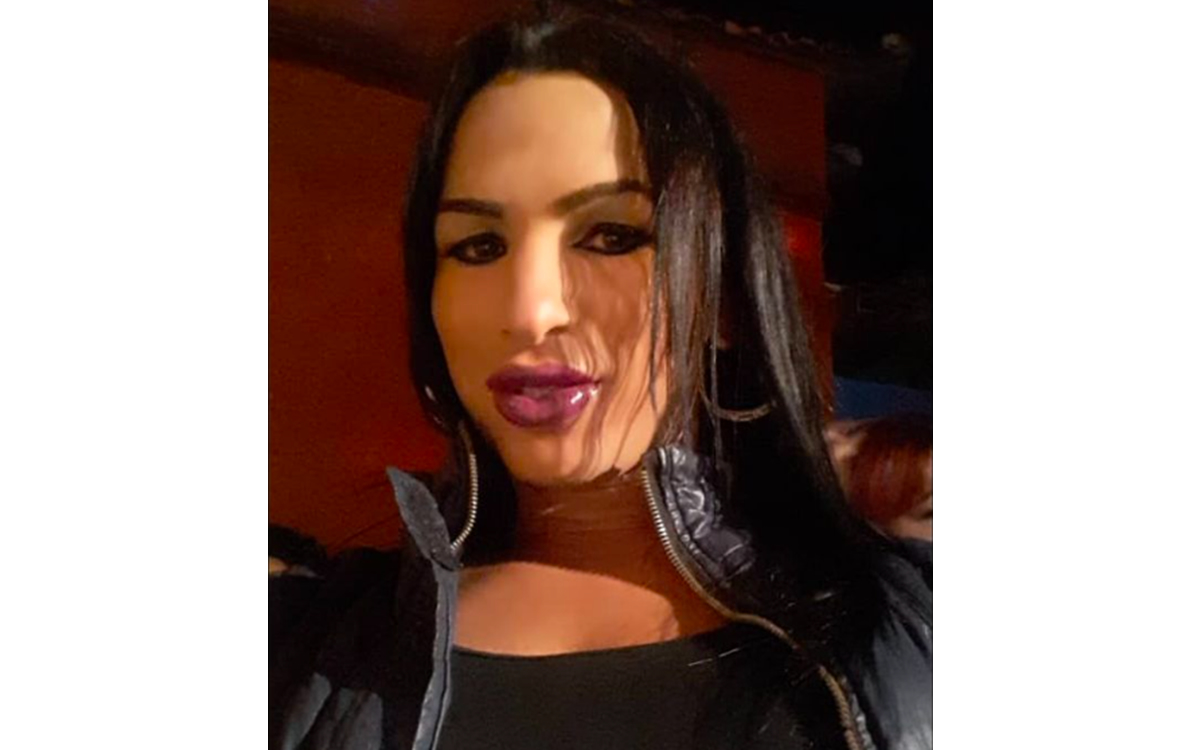
A transgender woman with HIV who participated in an anti-government protest in Cuba in 2021 has been released from prison.
Luz Escobar, an independent Cuban journalist who lives in Madrid, on Saturday posted a picture of Brenda Díaz and her mother on her Facebook page.
“Brenda Díaz, a Cuban political prisoner from July 11, was released a few hours ago,” wrote Escobar.
Authorities arrested Díaz in Güira de Melena in Artemisa province after she participated in an anti-government protest on July 11, 2021. She is one of the hundreds of people who authorities took into custody during and after the demonstrations.
A Havana court in 2022 sentenced Díaz to 14 years in prison. She appealed her sentence, but Cuba’s People’s Supreme Court upheld it.
Escobar in her Facebook post said authorities “forced” Díaz to “be in a men’s prison, one of the tortures she suffered.” Mariela Castro, the daughter of former Cuban President Raúl Castro who directs the country’s National Center for Sexual Education, dismissed reports that Díaz suffered mistreatment in prison. A source in Cuba who spoke with the Washington Blade on Saturday said Díaz was held in a prison for people with HIV.
The Cuban government earlier this week began to release prisoners after President Joe Biden said the U.S. would move to lift its designation that the country is a state sponsor of terrorism. The Vatican helped facilitate the deal.
U.S. Sen. Marco Rubio (R-Fla.), who is Cuban American, on Wednesday criticized the deal during his confirmation hearing to become the next secretary of state. President-elect Donald Trump, whose first administration made the terrorism designation in January 2021, will take office on Monday.
Caribbean
Dutch Supreme Court rules Aruba, Curaçao must allow same-sex couples to marry
Ruling likely also applicable to St. Maarten
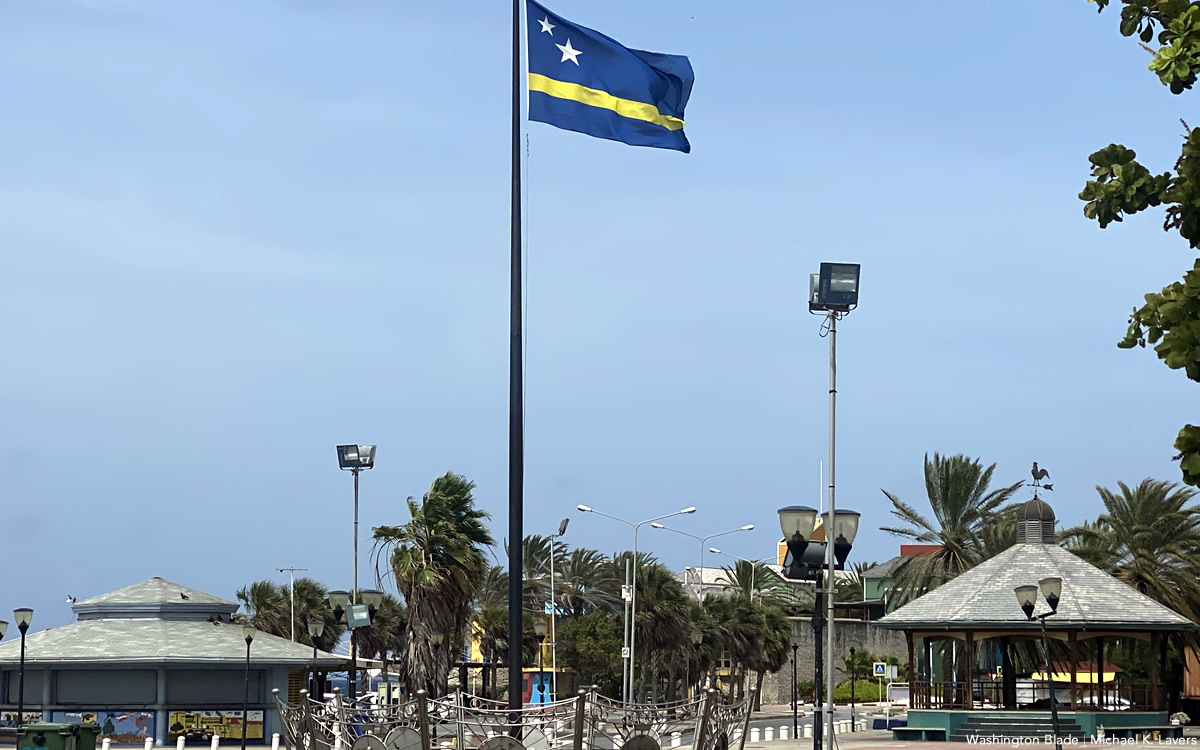
The Dutch Supreme Court on Friday ruled Aruba and Curaçao must extend marriage rights to same-sex couples.
The Joint Court of Justice of Aruba, Curaçao, St. Maarten and of Bonaire, St. Eustatius, and Saba in 2022 ruled in favor of marriage equality in two cases that Fundacion Orguyo Aruba and Human Rights Caribbean in Curaçao filed.
The governments of the two islands appealed the ruling.
The Joint Court of Justice of Aruba, Curaçao, St. Maarten and of Bonaire, St. Eustatius, and Saba has jurisdiction over Aruba, Curaçao, and St. Maarten —three constituent countries within the Netherlands — and Bonaire, St. Eustatius, and Saba — which are special municipalities within the kingdom.
Same-sex couples have been able to legally marry and adopt children in Bonaire, St. Eustatius, and Saba since 2012.
Aruba, Curaçao, and St. Maarten must recognize same-sex marriages from the Netherlands, Bonaire, St. Eustatius, and Saba. Aruba’s registered partnership law took effect in 2021.
“Today, we celebrate a historic victory for the dignity and rights of LGBT individuals in Curaçao and Aruba,” said Human Rights Caribbean President Janice Tjon Sien Kie on Friday in a statement.
Aruban Sen. Miguel Mansur, who is gay, on Friday described the ruling to the Washington Blade as “an amazing victory which applies to Aruba, Curaçao, and by implication St. Maarten.”
“Aruba progresses into a society with less discrimination, more tolerance, and acceptance,” he said.
Melissa Gumbs, a lesbian St. Maarten MP, told the Blade the ruling “could very well have some bearing on our situation here.”
“I’m definitely looking into it,” she said. “We’re researching it to see what is the possibility, and also in touch with our friends in Aruba who are, of course, overjoyed with this ruling.”
Cuba, Puerto Rico, the U.S. Virgin Islands, St. Martin, St. Barts, Martinique, and Guadeloupe, are the other jurisdictions in the Caribbean in which same-sex couples can legally marry.
Mansur said the first same-sex marriages in Aruba will happen “very soon.”
“There are two couples ready to wed,” he told the Blade.
Caribbean
Black transgender woman from Chicago disappears in the Bahamas
Taylor Casey last seen on June 19 on Paradise Island
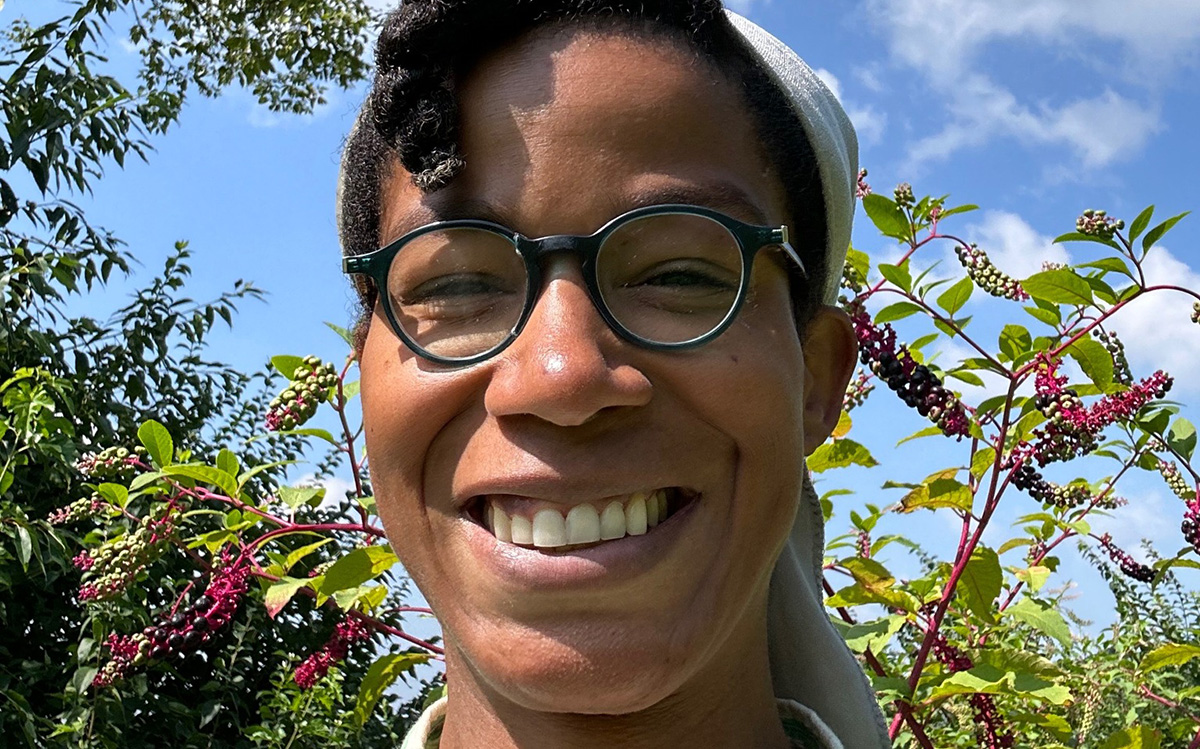
A Black transgender woman from Chicago disappeared last month while attending a yoga retreat in the Bahamas.
A flyer the Royal Bahamas Police Force has distributed says Taylor Casey, 42, was last seen on June 19 on Paradise Island, which is adjacent to Nassau, the country’s capital.
Casey’s family in a press release said employees at the Sivanandra Ashram Yoga Retreat she was attending reported her missing on June 20 “when she failed to attend that day’s classes.”
Casey’s mother, Colette Seymore, traveled to Paradise Island after her daughter disappeared.
The press release, which advocates in Chicago released ahead of a press conference on Thursday, notes “a search of the area and conversations with the Bahamian authorities left Ms. Colette Seymore with more questions than answers.”
Thursday is Casey’s 42nd birthday.
Seymore is among those who spoke at Thursday’s press conference.
“My child has been missing for almost three weeks,” said Seymore in the press release. “My family, friends, and I are distraught! I am pleading with everyone to call your elected officials and demand the FBI lead this investigation and bring her home safe and sound.”
The Windy City Times described Casey as “a fixture of Chicago’s transgender community and a beloved youth advocate.” Casey has also practiced yoga for 15 years, and went to the retreat “as part of a long-term goal to deepen her yoga practice.”
“She was excited to be participating in the yoga teacher training program and looking forward to sharing her experience with others when she returned,” noted a second press advisory her family released this week.
The Nassau Guardian, a Bahamian newspaper, on June 27 reported authorities found Casey’s cell phone in the ocean, but her other belongings were still in her room at the retreat.
A spokesperson for Taylor’s family told the Washington Blade they have reached out to the State Department and the U.S. Embassy in the Bahamas for assistance. Eyewitness News Bahamas, a Bahamian newscast, on June 28 reported the Federal Bureau of Investigation is working with Bahamian authorities to investigate Taylor’s disappearance.
The Bahamas Organization of LGBTI Affairs has also offered its support to Taylor’s family and assistance to authorities.
“There is still hope,” Alexus D’Marco, the group’s executive director, told Eyewitness News Bahamas. “They’re just looking for that piece of hope and to have some closure to finding their loved one.”
D’Marco also called for Bahamian authorities to do more to investigate missing persons’ cases in the country.
“A human being is missing, and that is the whole thing about this,” she told Eyewitness News Bahamas. “Regardless of her gender identity, being identified as a trans person, she’s still a human being and she’s still a visitor to our shores.”
Caribbean
Dominica High Court of Justice decriminalizes homosexuality
Gay man challenged statute in 2019

ROSEAU, Dominica — Dominica’s High Court of Justice on Monday struck down provisions of a law that criminalized consensual same-sex sexual relations.
A gay man who remains anonymous in 2019 challenged sections of the country’s Sexual Offenses Act that criminalized anal sex and “gross indecency” with up to 10 years and 12 years in prison respectively. The plaintiff argued the provisions violated his constitutional rights.
The Dominica Equality and Sexual Expression Association and the Eastern Caribbean Alliance for Diversity and Equality, a group that advocates for LGBTQ+ and intersex rights in the region, in a press release noted the court in its ruling affirmed “the criminalization of consensual same-sex activity between adults is unconstitutional.” The groups added Justice Kimberly Cenac-Phulgence “declared that the laws commonly known as buggery and gross indecency laws, contravenes the constitution of the Commonwealth of Dominica, namely the right to liberty, freedom of expression, and protection of personal privacy.”
“It is long past time that the dignity and dreams of all Dominicans were recognized,” said DESEA Executive Director Sylvester Jno Baptiste in the press release. “We are all God’s children, and he loves us all equally. Laws that treat some Dominicans as less than others, have no place in a just society.”
Dominica is a former British colony that is located between Guadeloupe and Martinique in the Lesser Antilles.
Antigua and Barbuda, St. Kitts and Nevis, Barbados, and Trinidad and Tobago in recent years have decriminalized consensual same-sex sexual relations.
The Inter-American Commission on Human Rights in 2021 issued a decision that said Jamaica must repeal its colonial-era sodomy law. The country’s Supreme Court last year ruled against a gay man who challenged it.
A judge on St. Vincent and the Grenadines’s top court in February dismissed two cases that challenged the country’s sodomy laws.
“Decriminalization helps create an environment where LGBTQ individuals can live openly without fear of persecution, enabling them to access health care, education, and employment without facing discrimination,” said Outright Executive Director Maria Sjödin on Monday in response to the Dominica ruling. “The repeal of these discriminatory laws is a testament to the tireless efforts of activists, advocates, and allies who have long fought for justice and equality. It is a victory for human rights and a significant milestone in the ongoing struggle for LGBTQ rights in the Caribbean.”
Caribbean
Gay couple seeks recognition of Fla. marriage in Turks and Caicos
Tim Haymon denied spousal exemption under territory’s immigration law
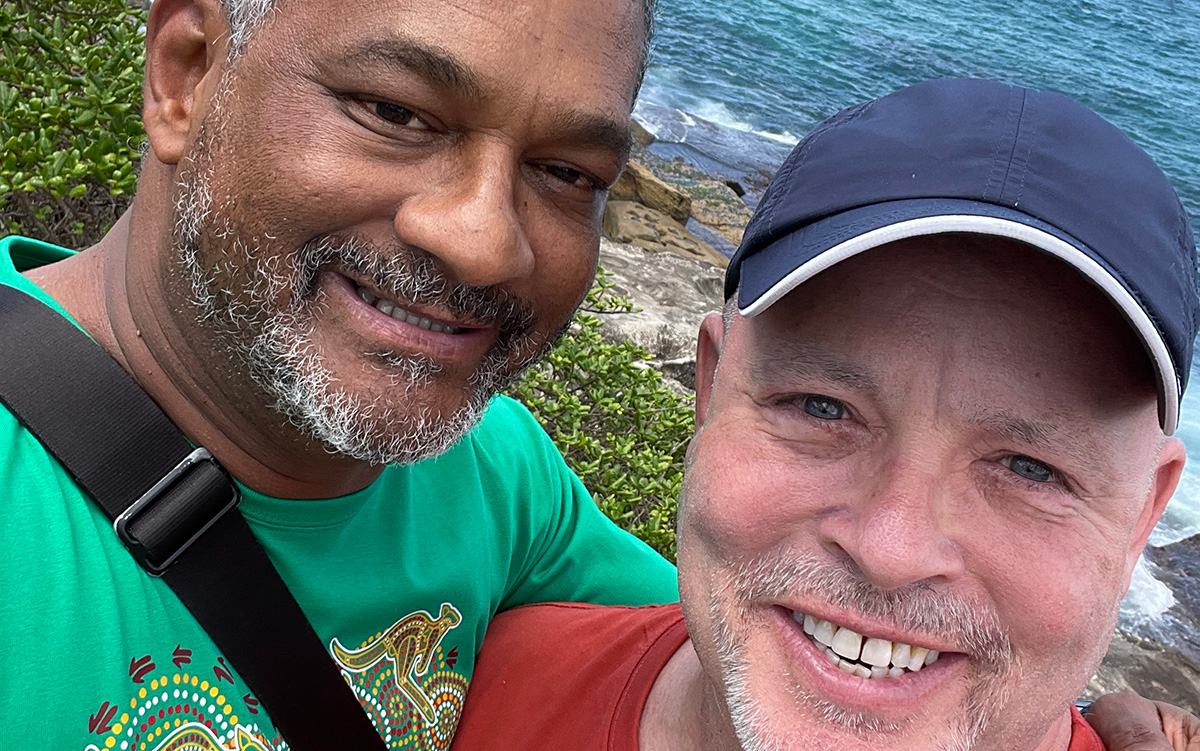
PROVIDENCIALES, Turks and Caicos — A same-sex couple has filed a lawsuit against the Turks and Caicos Islands’ government after it refused to legally recognize their marriage.
Richard Sankar, a realtor who has lived in the British territory for 27 years and is a Turks and Caicos citizen, married Tim Haymon in Fort Lauderdale, Fla., in 2020.
Haymon, who is American, in August 2021 applied for a spousal exemption under the Turks and Caicos’ immigration law on the basis of his status as a spouse that would have allowed him to legally live and work in the territory. The Turks and Caicos’ Director of Immigration denied the application because its definition of marriage used does not include same-sex couples. Haymon and Sankar filed their lawsuit in October 2021.
Stanbrook Prudhoe, a law firm in the Turks and Caicos, represents Haymon and Sankar.
The trial court, which is also known as the Supreme Court, heard the case in November 2022.
The court on March 1 said the work permit exemption refusal violates the Turks and Caicos’ constitution that bans discrimination based on sexual orientation. It has yet to release the ruling itself.
“I am suing for the right to recognize our marriage,” Haymon told the Washington Blade on March 2 during a Zoom interview from Sydney where he and Sankar were on vacation. “Just like any other spouse coming to the Turks and Caicos Islands and marrying a Turks and Caicos islander, we’re just wanting the same rights.”
The Turks and Caicos are a group of islands that are located roughly 650 miles southeast of Miami.
Consensual same-sex sexual relations have been decriminalized in the British territory since 2001. The constitution states “every unmarried man and woman of marriageable age (as determined by or under any law) has the right to marry a person of the opposite sex and found a family.”
Then-Cayman Islands Grand Court Chief Justice Anthony Smellie in 2019 ruled same-sex couples can legally marry in the Cayman Islands. The Caymanian Court of Appeal later overturned the decision, and the British territory’s Civil Partnership Law took effect in 2020.
Then-Bermuda Supreme Court Justice Charles-Etta Simmons in 2017 issued a ruling that paved the way for gays and lesbians to legally marry in the British territory. The Domestic Partnership Act — a law then-Gov. John Rankin signed that allows same-sex couples to enter into domestic partnerships as opposed to get married — took effect in 2018.
Bermuda’s top court later found the Domestic Partnership Act unconstitutional. The Privy Council, a British territories appellate court in London, upheld the law. It also ruled same-sex couples do not have the constitutional right to marry in the Cayman Islands.
Haymon and Sankar told the Blade they expect the Privy Council will eventually hear their case.
“We are prepared for that,” said Sankar. “Our attorneys are prepared for that.”
Haymon added he hopes their lawsuit will inspire other same-sex couples in the Turks and Caicos to fight for legal recognition of their relationships.
“We hope that one of the locals will now take up the flag and say I want to marry my partner,” he said.
Same-sex couples can legally marry in Cuba, Puerto Rico, the U.S. Virgin Islands, Saba, St. Martin, St. Barts, St. Eustatius, Guadeloupe, Martinique and Bonaire.
The Joint Court of Justice of Aruba, Curaçao, Sint Maarten and of Bonaire, Sint Eustatius and Saba in 2022 ruled Aruba and Curaçao, which are constituent countries within the Netherlands, must allow same-sex couples to legally marry.
Aruban lawmakers are currently considering a marriage equality bill. The Dutch Supreme Court in the coming months is expected to rule on the Aruba and Curaçao case.
Caribbean
Challenges to St. Vincent and the Grenadines’ sodomy laws dismissed
‘Freedom and equality is worth fighting for’
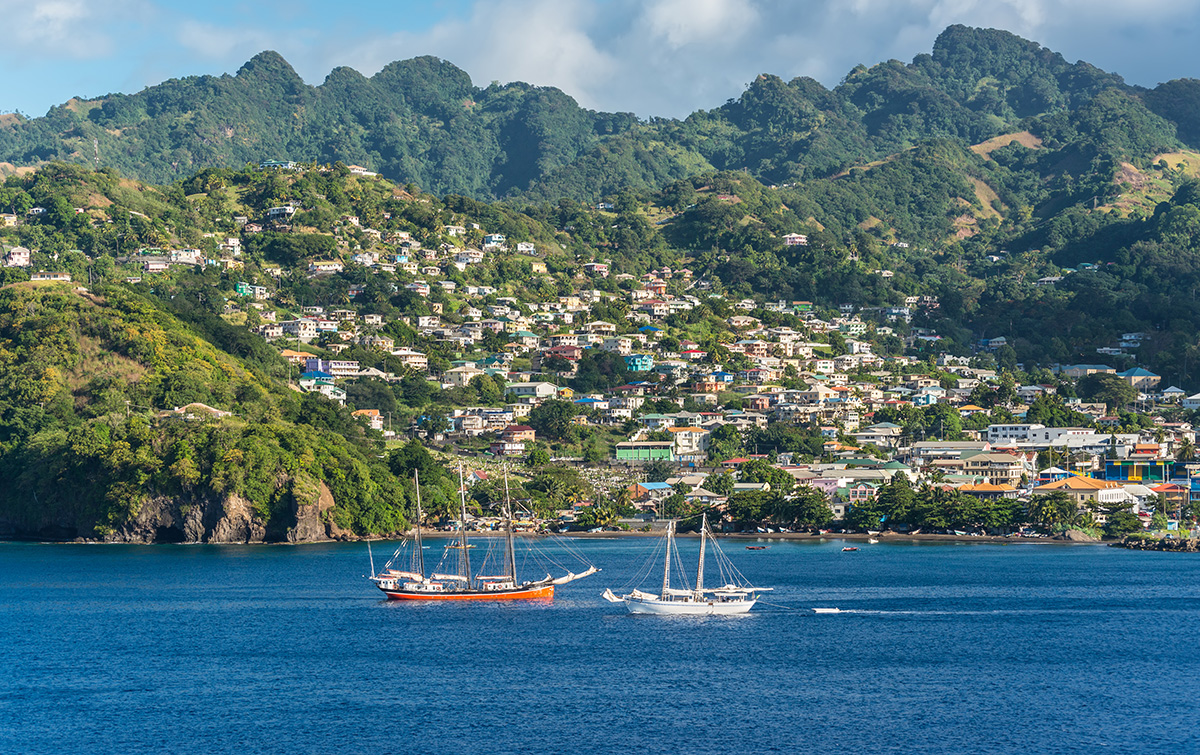
KINGSTOWN, St. Vincent and the Grenadines — A judge on St. Vincent and the Grenadines’ top court on Friday dismissed two cases that challenged the country’s sodomy laws.
Two gay men from St. Vincent, the country’s main island, in 2019 challenged laws that criminalize consensual same-sex sexual relations. High Court Justice Esco Lorene Henry on Friday dismissed the two cases.
Sean Macleish, one of the two plaintiffs who lives in the U.S., expressed disappointment in the decision.
“I am disappointed with the judge’s ruling and will be discussing our options with my legal team because freedom and equality is worth fighting for,” Macleish told the Washington Blade on Friday in an email.
Jeshua Bardoo, a lawyer who founded Equal Rights, Access and Opportunities SVG, a Vincentian advocacy group, said Friday is a “sad day for LGBTQ+ rights in St. Vincent and the Grenadines.”
“Internationally and regionally, laws similar to those challenged in these cases have been declared unconstitutional and in violation of the rights of LGBTQ+ persons,” said Bardoo in a press release the Eastern Caribbean Alliance, a regional LGBTQ+ rights group, issued. “These archaic and draconian colonial laws, though not strictly enforced, symbolically denigrate LGBTQ+ persons as second-class citizens in their own country and perpetuate prejudice and stigma against them.”
Outright International Executive Director Maria Sjödin also criticized the ruling.
“The rejection of the bid to decriminalize same-sex conduct in St. Vincent and the Grenadines is a huge disappointment and significant setback for LGBTQ rights in the country,” said Sjödin. “We urge the government to reconsider its position and take meaningful steps towards ensuring the full protection and dignity of all citizens, regardless of their sexual orientation or gender identity.”
Antigua and Barbuda, St. Kitts and Nevis, Barbados and Trinidad and Tobago in recent years have decriminalized consensual same-sex sexual relations.
The Inter-American Commission on Human Rights in 2021 ruled Jamaica must repeal its colonial-era sodomy law. The country’s Supreme Court last year ruled against a gay man who challenged it.

KINGSTON, Jamaica — The Jamaican Supreme Court on Friday ruled against a gay man who challenged the country’s colonial-era sodomy law.
Maurice Tomlinson, an activist from Montego Bay who now lives in Canada with his husband, in the lawsuit he filed in November 2015 notes the statute violates the right to privacy and other provisions of the Jamaican constitution. He also argues the sodomy law violates “the right to protection from inhuman or degrading punishment or other treatment.”
The Jamaica Coalition for a Healthy Society, the Lawyers’ Christian Fellowship, Hear the Children’s Cry and a group to which the ruling refers as “The Churches” defended the law. Tomlinson on Friday told the Washington Blade that all four of these entities “have American affiliates.”
“Thankful for the privilege of living in a country where my love isn’t illegal,” wrote Tomlinson on his Facebook page.
Jamaica is among the dozens of countries in which consensual same-sex sexual relations remain criminalized.
Antigua and Barbuda, St. Kitts and Nevis, Barbados and Singapore last year decriminalized homosexuality.
The Mauritius Supreme Court earlier this month issued a ruling that struck down the country’s colonial-era sodomy law. Courts in Belize and Trinidad and Tobago in recent years have also struck down criminalization statutes in their respective countries.
The Caribbean Court of Justice in 2018 struck down a Guyana law that criminalized cross-dressing.
Tomlinson told the Blade that he can appeal the ruling to the Jamaican Court of Appeal and then to the Privy Council in London.
Jamaica gained independence from the U.K. in 1962, and a referendum on whether the country should remove the British monarch as head of state is expected to take place next year. The Privy Council is an appellate court for British territories, but it can hear appeals of Jamaican Court of Appeal rulings.
Caribbean
Trans woman remains in prison two years after protesting against Cuban government
Brenda Díaz among hundreds arrested on July 11, 2021

A Transgender woman with HIV who participated in an anti-government protest in Cuba on July 11, 2021, remains in prison two years later.
Authorities arrested Brenda Díaz in Güira de Melena in Artemisa province.
The Güira de Melena protest was one of dozens against the Cuban government that took place across the country July 11, 2021. Díaz is among the hundreds of people who were arrested during the demonstrations.
A Havana court last year sentenced García to 14 years in prison. She appealed her sentence, but Cuba’s People’s Supreme Court upheld it.
Yoan de la Cruz, who is gay, used Facebook Live to livestream the first July 11 protest that took place in San Antonio de los Baños in Artemisa province. The same Havana court that sentenced Díaz condemned De La Cruz to six years in prison, but he was released in May 2022 and placed under house arrest for five years.
Mariela Castro, the daughter of former Cuban President Raúl Castro who directs the country’s National Center for Sexual Education, earlier this year during an interview with Agencia EFE dismissed reports that Díaz continues to suffer mistreatment in prison. The U.S. State Department has repeatedly urged Cuban authorities to release Díaz and others who participated in the July 11 protests.
“Today, we mark two years since tens of thousands of Cubans across the entire island raised their voices for their fundamental freedoms,” said Secretary of State Antony Blinken on Tuesday in a statement. “The United States stands in solidarity with those in Cuba who continue to desire a free democracy where their voices are heard, their businesses prosper and their children can achieve a brighter future.”
“The world will not forget those who bravely made their voices heard in the face of extreme repression, including the more than 700 individuals who remain in Cuban jails, condemned to prison sentences ranging up to 25 years for exercising their freedoms of expression and peaceful assembly,” added Blinken.
Florida Congresswoman Debbie Wasserman Schultz is among the American lawmakers who also acknowledged the second anniversary of the July 11 protests.
“Two years ago today Cubans marched to demand their freedom,” said the Florida Democrat in a tweet. “Those calls cannot go unanswered. We must stand strong against the regime until they free political prisoners and respect human rights.”
Miami Mayor Francis Suarez, a Republican presidential candidate who is of Cuban descent, in a tweet noted the “largest protest for freedom in Cuba began two years ago today.” Suarez also said the Biden administration “ignored their pleas for help.”
“As president, I would have a message to the oppressors of Cuba — freedom is coming,” tweeted Suarez.
-

 Theater4 days ago
Theater4 days agoGeffen Playhouse’s The Reservoir finds queer humor and joy in recovery and loss
-

 COMMENTARY3 days ago
COMMENTARY3 days agoUSAID’s demise: America’s global betrayal of trust
-

 a&e features3 days ago
a&e features3 days agoHow this Texas drag king reclaimed their identity through Chicano-inspired drag
-

 Obituary2 days ago
Obituary2 days agoThe queer community mourns the loss of trailblazer Jewel Thais-Williams
-

 Television2 days ago
Television2 days agoICYMI: ‘Overcompensating’ a surprisingly sweet queer treat
-

 a&e features4 days ago
a&e features4 days agoFrom Drag Race to Dvořák: Thorgy Thor takes the Hollywood Bowl for Classical Pride
-

 Arts & Entertainment4 days ago
Arts & Entertainment4 days agoMary Lambert Returns With a Battle Cry in new single, “The Tempest”
-

 Opinions17 hours ago
Opinions17 hours agoThe psychology of a queer Trump supporter: Navigating identity, ideology, and internal conflict
-

 Living15 hours ago
Living15 hours agoFaithfully queer: Finding God and growth in Modern Orthodoxy
-

 Breaking News3 hours ago
Breaking News3 hours agoProject Angel Food loses $340,000 grant to feed people living with HIV







